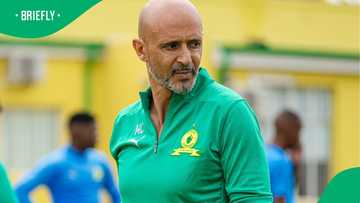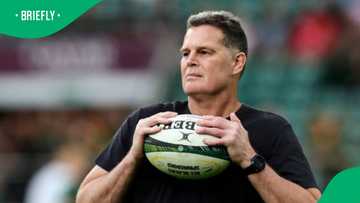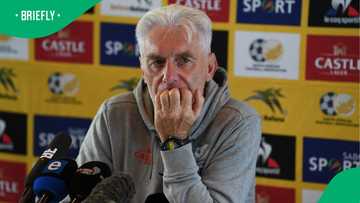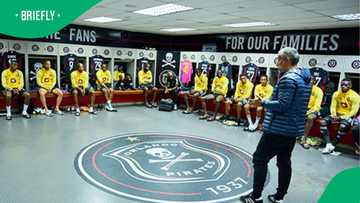Rassie Erasmus Tells Senior Springboks: Prepare for Less Game Time
- Rassie Erasmus informs senior Springboks that reduced game time is necessary for the long-term success of the team
- The plan aims to extend the careers of experienced players, ensuring they remain at peak performance for future competitions
- By rotating the squad, Erasmus provides younger players with more chances to step up, ensuring fresh energy and competition within the team
Springboks Head Coach , Rassie Erasmus has informed the senior members of the Springbok squad that they must prepare for reduced game time.
With a long-term view focused on the 2027 Rugby World Cup, Erasmus believes that balancing the experience of veteran players with the energy of younger talent is key.
For the greater good of the team’s future success, senior players will need to accept this change.
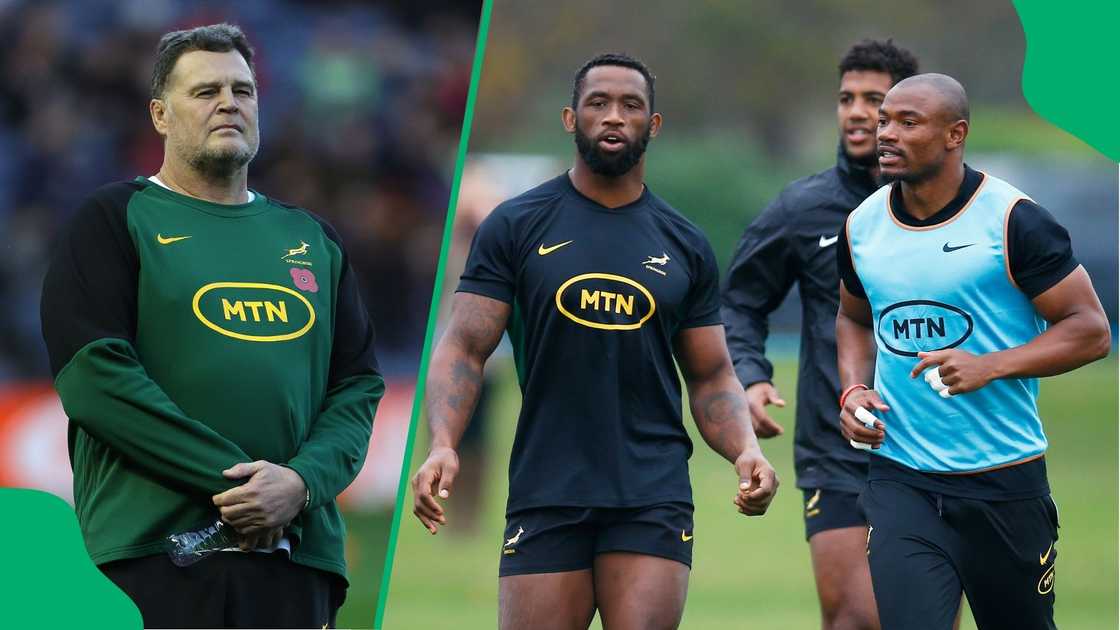
Source: Getty Images
Prioritizing Longevity and Performance
Erasmus’ strategy aims to extend the careers of the experienced players while ensuring the team stays competitive.
PAY ATTENTION: stay informed and follow us on Google News!
Many of the 2019 World Cup players will still be in contention for the 2027 tournament but will be approaching their mid-30s.
Reducing game time is vital to ensure that they stay in peak form without burning out, allowing them to contribute when needed on the road to the next World Cup.
Opening Opportunities for Young Talent
The plan to reduce game time for senior players also opens the door for younger players to take on more responsibility.
Erasmus is focused on giving rising talent the chance to prove themselves and push for a place in the starting lineup.
At the same time, senior players will be expected to mentor and guide the next generation, helping to develop the squad for future success.
Team Effort Over Individual Reliance
Erasmus is emphasizing that the upcoming season will require a collective team effort.
The Springboks won’t rely on the same group of players week in and week out.
By rotating the squad and allowing for new combinations, the team will remain adaptable and competitive, with every player playing a role in the team’s success.
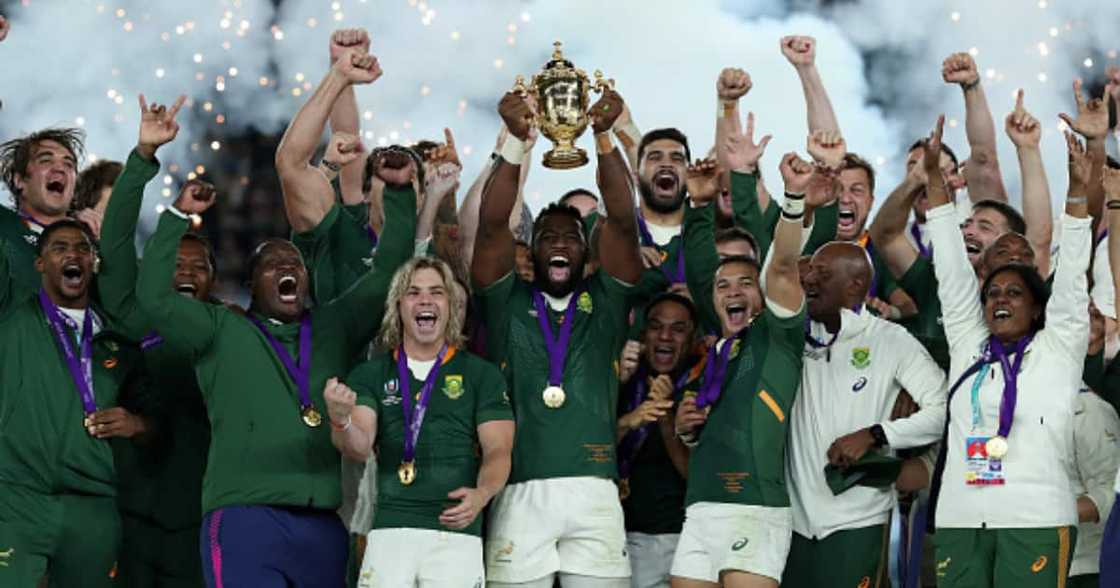
Source: Getty Images
Eyes on the 2027 World Cup
The overarching goal for Erasmus is the 2027 Rugby World Cup, and managing player workload is a crucial part of this long-term vision.
While the adjustment to less game time may be challenging for some senior players, it is a necessary step to ensure that the team remains strong, with a deep roster, and ready to perform at its best when the 2027 World Cup arrives.
When will Erasmus changes take effect?
It is believed that the transition towards reduced game time for senior Springbok stars is expected to be gradual.
Erasmus will likely implement this strategy starting in the upcoming test matches and leading into the Rugby Championship. With the changes, the coaching staff can assess the impact and make necessary adjustments before the next World Cup cycle intensifies.
Will the changes impact Erasmus' team selection?
Rassie Erasmus' squad selection will become more dynamic with his plans to rotate the squad. He and his coaching team will likely use a mix of experienced Springbok players and emerging talent in different matches. Also, his selections will depend on the opposition, player form, and injury concerns.
The challenges and criticism ahead
While Rassie Erasmus' strategy is designed for long-term success, it is not without possible drawbacks.
Some fans may argue that reducing game time for experienced Springbok players could disrupt the team's chemistry and affect results in the short term.
Also, it could take a bit of time for the younger players to step up quickly but Erasmus and his coaching staff plans to carefully balance these factors to maintain consistency and competitiveness.
Rassie Erasmus Reaffirms Siya Kolisi as Springbok Captain
Briefly News previously reported that Coach Rassie Erasmus has reaffirmed Siya Kolisi as the Springbok captain, as long as he remains fit and healthy.
Despite Kolisi’s age, turning 35 in June, Erasmus emphasized Kolisi’s vital role as a leader, highlighting his transformation into a national icon.
While alternative leadership options like Eben Etzebeth, Bongi Mbonambi, and Pieter-Steph du Toit are available, Kolisi's continued captaincy is seen as essential for the team's stability and success heading into the next Rugby World Cup.
Nomso Obiajuru was a contributing writer in this article
PAY ATTENTION: Follow Briefly News on Twitter and never miss the hottest topics! Find us at @brieflyza!
Proofreading by Jimmy Modise, copy editor at Briefly.co.za.
Source: Briefly News

